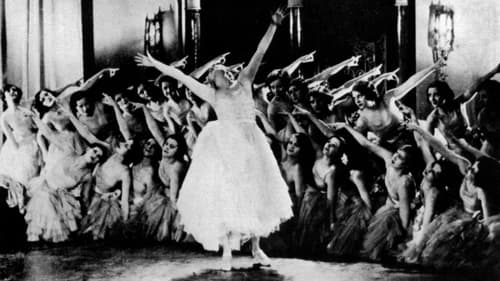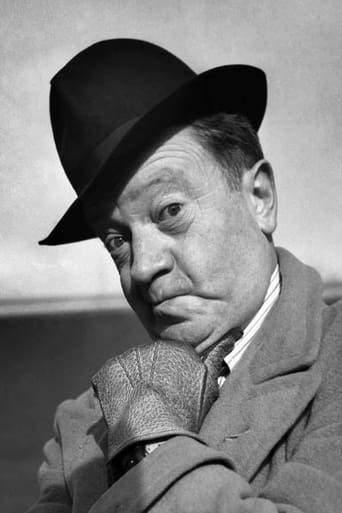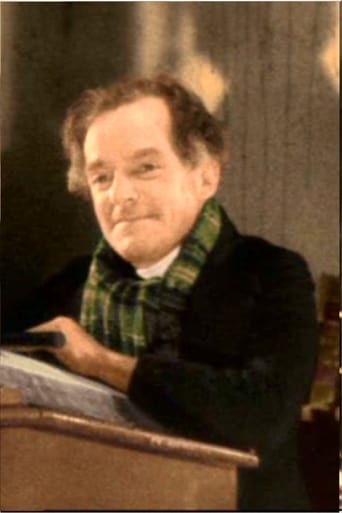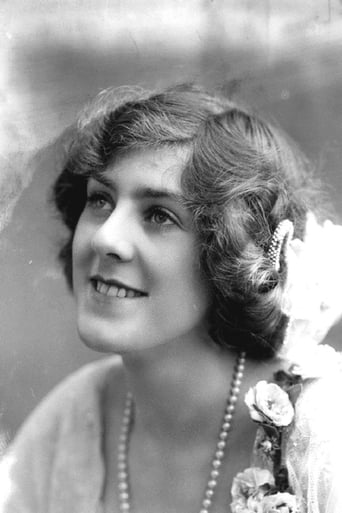WillSushyMedia
This movie was so-so. It had it's moments, but wasn't the greatest.
AshUnow
This is a small, humorous movie in some ways, but it has a huge heart. What a nice experience.
Lollivan
It's the kind of movie you'll want to see a second time with someone who hasn't seen it yet, to remember what it was like to watch it for the first time.
rowenalite
Released in 1930, Elstree Calling was directed by Andre Charlot, Jack Hulbert, Paul Murray, and Alfred Hitchcock. Luckily, too many cooks did not spoil the broth in this case but created a marvelous musical and comedic soufflé. The film is a series of vaudeville-type skits and sketches. Tommy Handley hosts the show. "Think, and having thunk, think again," Handley humorously advises the audience. The sections vary in quality but none are poor. Among the best: Teddy Brown whistling while playing the xylophone; lovely, blonde, and ethereal Helen Burnell in a sparkling sequined gown singing; a sprightly Russian-style song and dance number; Cicely Courtnedge singing an entrancing rendition of I'm Falling In Love; and Jack Hulbert and Helen Burnell in a dynamic duet. One brief sketch is darkly humorous as a man appears to enter a home, shoot the man and woman he "catches" kissing, only to realize, "I'm in the wrong flat!" In one section, bagpipes play while a Scotsman in a kilt sings about how "happiness costs such a lot." It is wonderfully sung but some viewers may be offended by the way it plays on the stereotype of the Scots as stingy.Far more viewers are apt to be offended by the sketches done by "The Three Eddies." The tap dancers are in blackface with white lips, white bowler hats, and white-rimmed round eyeglasses. Their tap dancing is wonderfully skilled but one does not have to be a stickler for "political correctness" to be disturbed by the racist stereotyping in their act. A better note is struck in a skit in which Elstree Calling appears to play with racial (not necessarily racist expectations). In an odd take on The Taming of the Shrew, Anna Mae Wong is the clearly Asian daughter of a white man. Beautiful Wong appears as Katherine in a shiny and revealing outfit. Instead of being "tamed," this "shrew" gets her revenge by throwing cream pies in the faces of all the men around her – including Shakespeare himself!Like many works from past time periods, Elstree Calling sometimes strikes an "off" chord with contemporary audiences. Nevertheless, it is a fast-paced and fun series. One hour and twenty-six minutes long, it never drags but is a very entertaining potpourri of performances.
writers_reign
A curio at best. I've always found Hitchcock to be vastly overrated but in this case there's no discernible trace of Hitchcock in the entire length though there are reports that he was responsible for the dire links in which Gordon Harker is attempting to 'tune' in a television set in his home (in 1930 yet)to a live broadcast emanating from Elstree studios in Borehamwood, Hertfordshire, a link in which the punch line - he finally gets a crystal clear image in the last seconds of the show - can be seen being telegraphed from John O' Groats. It's mostly notable for observations such as that Tommy Handley was already a sufficient name in 1930 to actually MC the show and didn't emerge fully-formed in ITMA. There are songs from the likes of Ivor Novello and Vivian Ellis, both clearly having off days, and four numbers are shot in two-colour tint.
loza-1
This is interesting as a period piece. It is also of interest to Hitchcock fans.Rather like the better-known American film King of Jazz, it is a collection of sketches albeit from the British music halls. Alas, this film is not nearly so good.Sadly the music hall acts do not work so well on film. Will Fyffe, composer of "I Belong to Glasgow" in particular dies the death of a dog in a ditch. There is a little Russian folk instruments orchestra who are uncredited. They probably only cost the studio ten pounds for the lot, and they may have been the same musicians who accompanied the great bass singer Fyodor Shalyapin on some of his best known records. To me they are the one act who come across well in this film. (Unlike Will Fyffe, balalaikas and domras will hold their own anywhere.) Sadly we may never know their names.I doubt if the film makers were aware that what they were producing was a time capsule.
Spondonman
I've probably seen this one over a dozen times now and I still love it, but mainly from the standpoint of the music. You have to forget you are a film buff (you are, aren't you?) and think of it as a collection of pop videos from 1930. And the pop ranges from the sublime to the ridiculous: My Heart Is Saying, in colour (?) nicely sung by Helen Burnell but danced atrociously, to Only A Working Man in b&w by the incomparable Lily Morris. Praise the Lord this film was made if only for her two turns, also the Will Fyffe bits and the Cicely Courtneidge end song, I'm Falling In Love. How that one passed the censor at the time I'll never know ... I suppose no one told him!Helen Burnell must have been the dancing inspiration for Jessie Matthews, or did all Show People dance like hippos pretending to be trees in the 20's? I've always loved the work of Jack Hulbert, mainly for his innocent British enthusiasm (and songs), but I'm afraid that he looked like a manic bus conductor in his one dance scene. Rotund Teddy Brown was marvellous to listen to - until he started telling jokes; The 3 Eddies - ah! Can you just imagine them walking on stage and launching into their high powered act nowadays? Horrified silence would follow, but how times and tastes have changed. The song Ladies Maids Always In The Know sung and danced to by the Charlot Girls would likewise be incomprehensible to nearly everyone too.The glue that 'holds' all this and more together is supplied by Gordon Harker trying to get a picture of it all on his TV and Tommy Handley as TV linkman, with some surprisingly flat gags for a change. A running gag is supplied by Donald Calthrop attempting to perform Shakespeare; Anna May Wong puts him in his place - have you ever seen 'Taming of the shrew' with a massive custard pie fight or with a circling riderless motorcycle being whipped?If you're going to watch this for the Hitchcock bits and are unmusical you won't like it, but if you can open your ears and hearts to these fine personalities from a bygone age then like me you may get something like innocent merriment from Elstree Calling.




